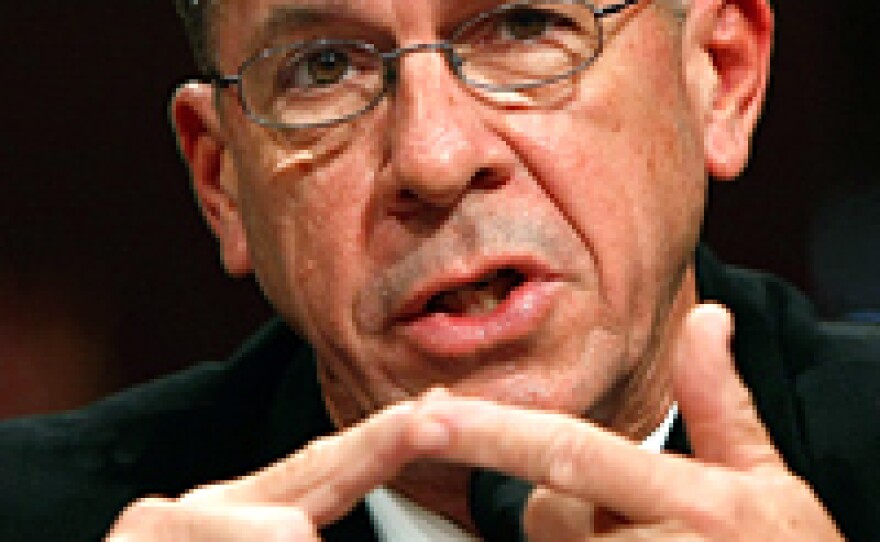
President Bush's nominee to head the Joint Chiefs of Staff on Tuesday said the U.S. made a mistake when it disbanded Saddam Hussein's army.
At his confirmation hearing before the Senate Armed Services Committee, U.S. Navy Admiral Michael Mullen said dissolving the Iraqi army provided "a recruiting pool for extremist groups."
Mullen told senators the recent buildup of troops in Iraq is giving commanders the forces they need to improve security. Although Mullen characterized the security situation as "not great," he said it is "better" than it was. He acknowledged there has not been much political progress.
The Armed Services Committee is expected to vote on Mullen's nomination before Congress adjourns Friday for its August recess.
President Bush's "surge" of troops is likely to be a topic for discussion during Mullen's confirmation hearing. In his written answers, Mullen said the decision in January to pour as many as 30,000 more U.S. forces into Iraq was the result of rigorous discussions with the president. Mullen said he and other Joint Chiefs met with the president and Defense Secretary Robert Gates to discuss the plan.
"We had rigorous and thorough discussions and debates" of the troop buildup plan, Mullen said in his written answers. "The president then made his decision, and I am in support of that decision and working to make it succeed."
Mullen, the chief of naval operations, was chosen to replace U.S. Marine Corps Gen. Peter Pace as the nation's top military officer and the senior military adviser to the president. Gates decided not to reappoint Pace for a second two-year term to avoid an acrimonious confirmation hearing over how the Bush administration has handled the war in Iraq.
Pace, who was vice chairman of the Joint Chiefs before being appointed chairman, was involved in all the key decisions leading to the March 2003 invasion of Iraq and the planning for the post-Saddam Hussein era. His term ends Oct. 1.
Iraq Ambassador Ryan Crocker and Gen. David Petraeus, the U.S. commander in Iraq, are to report to Congress in September on conditions related to the war strategy. Already, however, lawmakers from both parties have expressed impatience with progress in Iraq.
Mullen acknowledged that slow progress in Iraq is hurting U.S. credibility and emboldening Iran's regional ambitions.
Friends and associates say Mullen did not support the troop surge and worries that the Army is stretched too thin in Iraq, and that he complains that Iraqi officials are not doing enough to make the needed political and economic changes in their country. He will likely push for reductions in U.S. troops through this year and next.
Mullen is not considered one of the brainy futurists or crusaders who once surrounded Defense Secretary Donald Rumsfeld. He is more in the mold of the Pentagon's pragmatists: Gates and Deputy Defense Secretary Gordon England.
Loren Thompson, a defense analyst at the Lexington Institute, said Mullen and the other top Pentagon officials are problem solvers.
"When they look at the war, they don't consider it a crusade for democracy," he said. "They think about how to fix a problem that clearly is not going very well."
In one of the pre-hearing questions, Mullen is asked by the committee what he considers to be "the most significant mistakes the United States has made to date in Iraq."
He lists seven mistakes, including the May 2003 decision to disband the Iraqi army, which he says was a "potentially valuable asset for security, reconstruction, and provision of services to the Iraqi people."
Turning the troops loose, Mullen says, provided "a recruiting pool for extremist groups."
From NPR reports and The Associated Press
Copyright 2022 NPR. To see more, visit https://www.npr.org. 9(MDAzMjM2NDYzMDEyMzc1Njk5NjAxNzY3OQ001))





